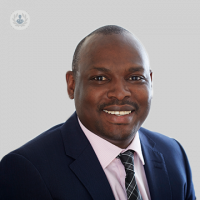Social egg freezing: simply a trend, or a realistic option?
Written by:In the last couple of years, there has been a great deal of press coverage surrounding social egg freezing, a term used to refer to the process of egg freezing for purely social reasons (healthy women who wish to freeze their eggs for later use, rather than for medical reasons). Mr David Ogutu, obstetrician, gynaecologist, and fertility expert, discusses social egg freezing, and the options available to women nowadays.

How does social egg freezing work?
Media coverage of company-sponsored egg freezing (US companies such as Apple and Facebook now offer free egg freezing to their female employees who would like to postpone motherhood but maintain fertility) intensified the debate about social egg freezing. Was this a publicity stunt, as most cynics observed, or a responsible employer looking out for the welfare of their female work force? The debate continues, with the UK media widely divided on opinion – is social egg freezing the ultimate insurance policy, or a risk not worth taking?
Women are born with a set number of eggs and the quality and quantity declines over time. The main determinant of fertility is the age, and therefore the quality of the eggs. The younger the age at which eggs are used, the higher the chances of future conception. This is the same case with spontaneous conception as well as with fertility treatments.
The chances of conceiving decline over time, whilst rate of miscarriage increases with time. Women who are not in a position or not ready to conceive may plan to freeze their eggs at a younger age as 'insurance', in case they have difficulty conceiving in future.
What is the success of egg freezing?
A study by the Human Fertilisation and Embryology Authority (HFEA) of women who used their frozen eggs in 2014 found that only 14% of implantation cycles were successful. What the study did not tease out was the age of the patients at the time they had their eggs frozen, or the technology which was used in the process.
Most women that froze eggs used them many years later, meaning most would have been frozen by the older ‘slow freezing’ technology. This had a much lower survival rate for the embryo and pregnancy success rate compared to new vitrification technology. The age of the women studied is also significant, as a larger proportion of older womens' results would have lower success rates.
Data from egg donation programs using the new vitrification technology is showing similar success rates from frozen eggs to those which we find with fresh eggs. This data shows that when women choose to freeze their eggs in their late twenties to mid-thirties, success rates should be similar to fresh IVF / ICSI cycles performed in that age group.
Make informed choices about your eggs
At Herts and Essex Fertility Centre, we believe that women should be empowered with all necessary information so they are able to make an informed choice. We encourage those in a stable relationship who are considering freezing eggs for social reasons to either reconsider their plans and start a family, or consider freezing embryos (fertilised eggs), as these have better survival rates and higher chances of success compared to unfertilised eggs.
However, if a decision to freeze eggs is made, realistic expectations of success rates, especially specific to the woman’s age, should be discussed. We would not necessarily stop those over 40 years of age from freezing eggs for future use, but rather dissuade. Their best chance would be to use the eggs now, or consider donor eggs in future.
However, we respect every woman’s right to make the best decision for her circumstances after being provided with clear information. We believe that society has to respect a woman’s right to determine what is best for her fertility, within the law and without compromising patients' health.
To book a consultation with Mr David Ogutu, simply visit his Top Doctors profile.



